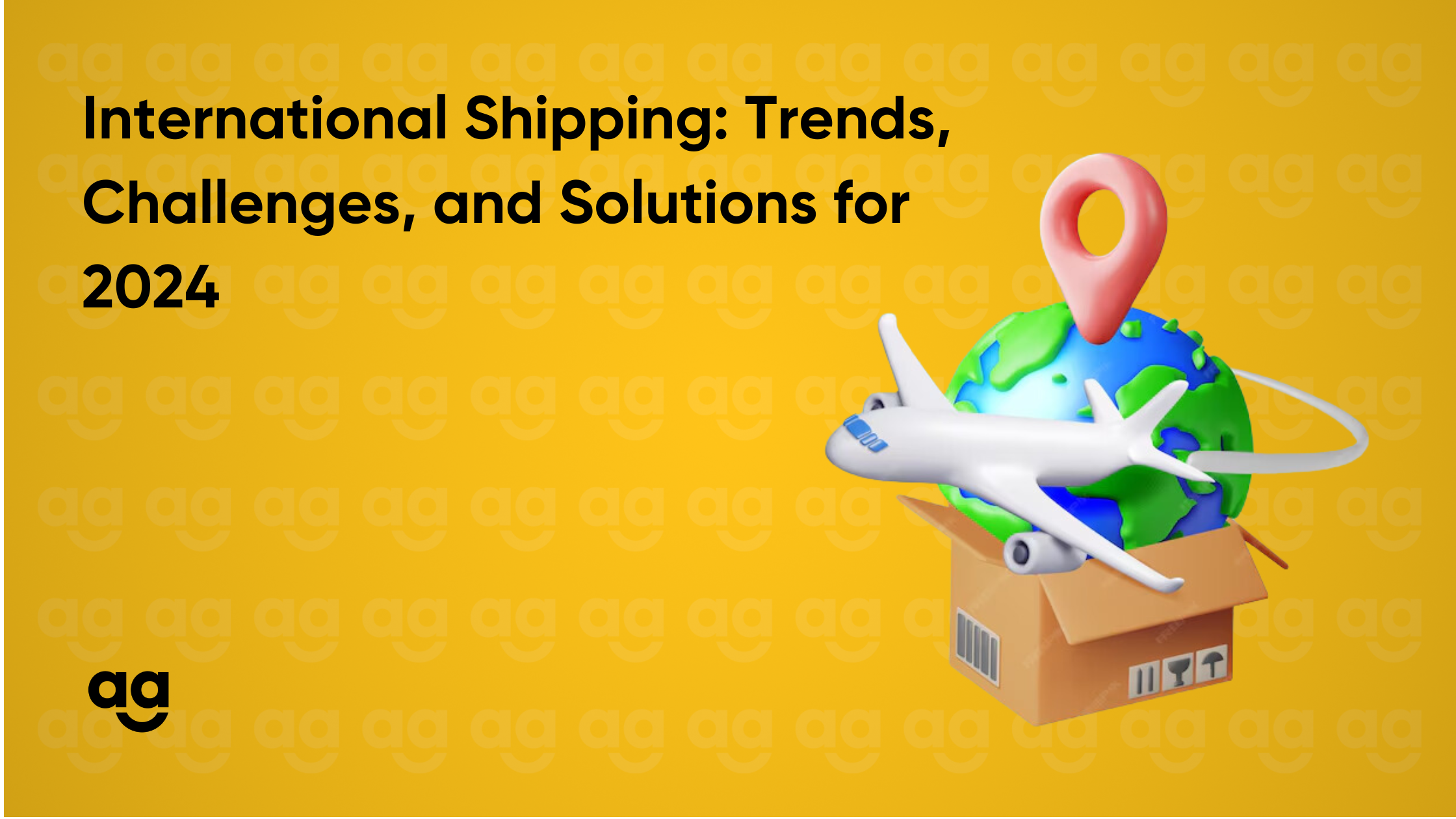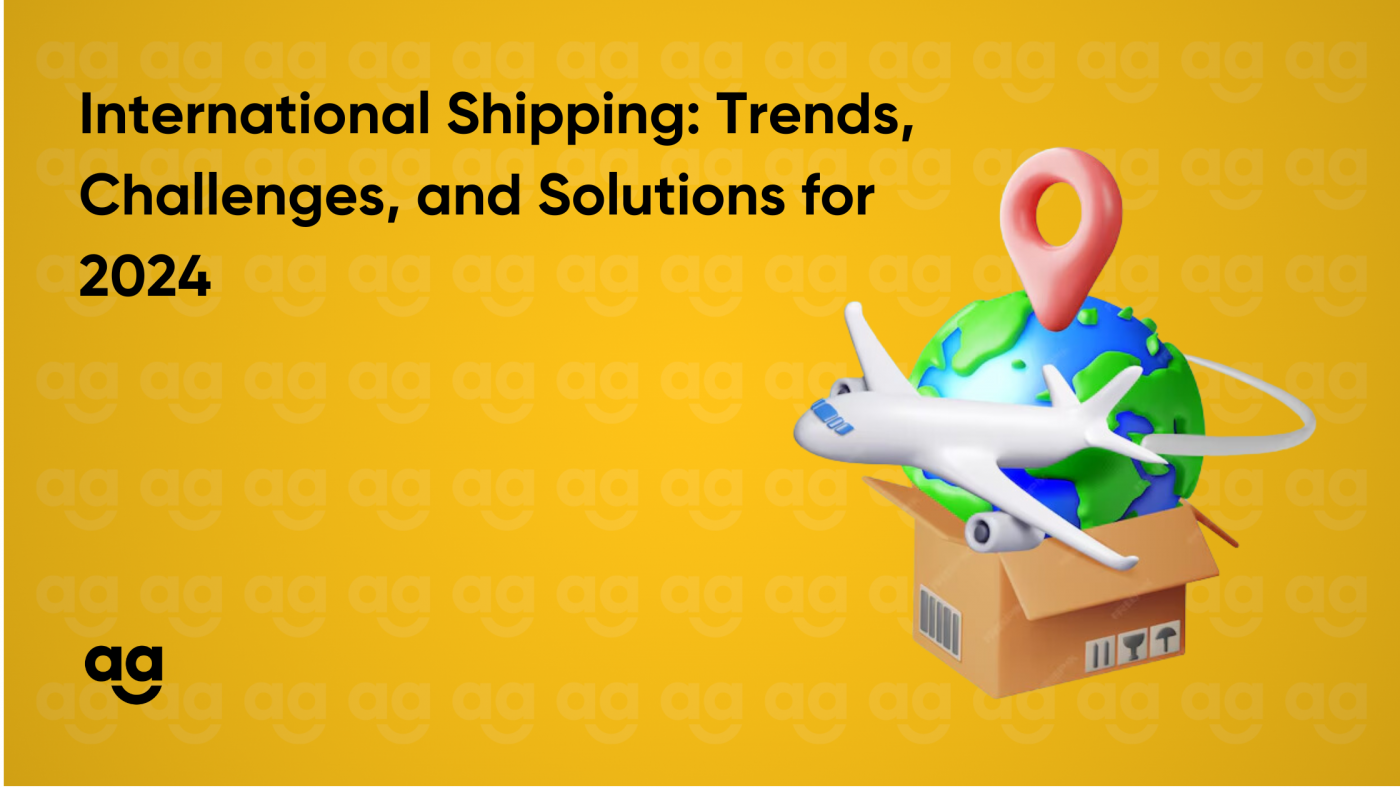The Future of Express Courier Delivery: Trends and Predictions
May 05, 2024
5 min read
Introduction
International shipping plays a significant part in the global economy, encouraging the transportation of goods over nations and connecting markets around the world. From customer shipments to raw materials, global shipping enables the influx of goods that support modern life.
Nevertheless, the international shipping industry is not free from trade or other supply chain disruption challenges. Keep reading below to learn more about the ongoing trends in the international shipping domain, the prevalent challenges, and the effective solutions you can implement to overcome these challenges.

Trends in International Shipping
Some of the latest trends in the international shipping industry are as follows:
Environmental Sustainability
Problems around climate change have made the shipping industry move towards greener options.
Furthermore, from searching for eco-friendly combustibles to leveraging renewable energy options such as hydrogen and wind energy, shipping businesses are leveraging cost-efficient and ecological solutions to decrease their carbon footprint.
E-commerce Expansion
The advancement of online business platforms has further increased the demand for global shipping assistance. People who shop online usually prefer faster goods delivery and consistent shipment, prompting shipping companies to explore innovative fulfillment technologies and last-mile shipping solutions.
International Trade Shifts
Political pressures, business conflicts, and geopolitical aspects continue to affect international trade structures. Shifts in manufacturing centers, business agreements, and international taxes can have considerable implications for global shipping routes and volumes.
Challenges Related to International Shipping
Some common challenges related to international shipping are as follows:
Container Shortages
The disturbance in the shipment timelines during the global pandemic has led to a shortage of shipping cargo in certain localities. This has disturbed supply chains and further increased the shipping expenses for businesses offering their assistance worldwide.
Administrative Compliance
The shipping industry is subject to a complicated network of legal regulations. This includes security norms, environmental directives, and trade compliance criteria. Ensuring legal adherence to these governmental regulations includes complexity and costs to shipping operations.
Cybersecurity Threats
As the international shipping business becomes majorly automated, cybersecurity dangers are constantly increasing. From data infringements to ransomware invasions, the industry faces critical dangers that may disturb operations and compromise confidential information.
Solutions to Addressing International Shipping Challenges
Below are some valuable solutions to address international shipping challenges.
Collaborative Logistics
Collaboration among partners, including shippers, carriers, and ports, is imperative for handling and overcoming challenges. Platforms and initiatives that promote data sharing and coordination can help optimize operations and decrease inefficiencies.
Digitalization and Automation
Leveraging digitalization and automation can streamline business operations, boost efficiency, and reduce the possibility of human errors.
Furthermore, the latest technologies, such as automated vessels, predictive upkeep, and mechanical cargo management, have the potential to reshape the industry and also prevent data infringements and ransomware attacks.
Risk Administration Strategies
Creating robust risk management procedures, including contingency planning, insurance options, and cybersecurity measures, can help overcome the effects of shipping disruptions and ensure trade continuity.
Final Thoughts
By taking advantage of modern technology, you can readily overcome the challenges faced by the international shipping industry and make way for a more productive, flexible, and sustainable future. In addition, by remaining ahead of the curve and embracing changing patterns, the shipping industry can explore the world of uncertainty and plan a route toward success.
Moreover, if you are looking for dependable logistics solutions to scale up your business operations, look no further than Shipyaari. Shipyaari can be your one-stop destination to streamline your logistical requirements and take your business operations to a whole new level.
So why wait? Sign up today to simplify your shipping processes.
Frequently Asked Questions
Key trends include a shift towards environmental sustainability, the expansion of e-commerce driving demand for faster delivery, and changes in international trade due to political and economic factors.
Challenges include container shortages, complex regulatory compliance, and increasing cybersecurity threats.
Digitalization and automation can streamline operations, enhance efficiency, reduce human errors, and improve cybersecurity.
Effective strategies include collaborative logistics, robust risk management procedures, contingency planning, and comprehensive cybersecurity measures.
Suggested Reads
Hyperlocal Personalization: Tailoring Experiences for Local Customers
Introduction The eCommerce industry in India has witnessed a rapid growth of hyperlocal services in
Continue ReadingDec



















 Shipping
Shipping







